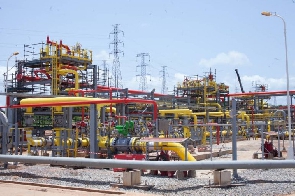Business News of Wednesday, 3 June 2020
Source: thebusiness24online.net
Coronavirus won’t disrupt gas imports, analyst says
Energy sector analyst Paa Kwesi Anamua Sekyi has allayed fears of any gas supply shortage as a result of the coronavirus pandemic, which has seen many countries close their borders, saying the country’s gas importation was not disrupted by the pandemic.
The Energy Commission said in its 2020 Energy Outlook report that the country would require 294,000-313,000 tonnes of Liquefied Petroleum Gas (LPG) to enable the government attain its 6.8 percent GDP growth estimate (6.7 percent non-oil).
Only 25 percent of this requirement was likely to come from the Atuabo Gas processing plant, the Commission said, which would make the country rely on 75 percent imports of gas to complement Atuabo’s production.
“Imports could still dominate since Tema Oil Refinery is not likely to operate at full capacity largely due to financial challenges. There is still the growing demand for LPG as cooking fuel in homes and particularly as transport fuel,” the Energy Commission said.
In an exclusive interview with Business24 on whether the pandemic could disrupt the country’s ability to import gas, Mr. Anamua Sekyi, who is the Executive Director of the think tank Institute of Energy Security (IES), said since all the country’s oil-producing fields are still working, including the Tweneboah Enyera and Ntomme (TEN) field, and are feeding the gas processing plant, supply of gas will not be interrupted.
He said even though the pandemic has affected supply chains, oil tankers and vessels were readily available to move crude and petroleum products at low freight rates.
“The excess supply of crude and petroleum products rather resulted in unprecedented price savings to fuel consumers around the world. The oil glut resulted in low fuel prices on the international market, translating into low fuel prices at domestic pumps since February 2020,” he added.
For instance, he said LPG, which sold around US$380 per metric tonne in January, fell below US$300 per metric tonne to roughly US$240 per metric tonne in May as a result of excess supply.
According to the energy sector analyst, only few refineries across the globe cut back on their production rate, largely because of low margins and, to some extent, storage space unavailability during the pandemic, adding that a chunk of the refiners were still producing at normal run rates for deliveries.
Government in its 2020 budget projected a crude oil price of US$62.6 per barrel and petroleum revenues of US$1.6bn for the year.
However, following the fall in oil prices, Finance Minister Ken Ofori-Atta said the preliminary analysis shows that at an average crude oil price of US$30 per barrel, the government would register a shortfall in crude oil receipts amounting to US$1bn.
He further explained that the shortfall corresponds to a projected shortage in Annual Budget Funding Amount of GH?3.5bn, while shortfalls in the Ghana Stabilisation Fund and the Ghana Heritage Fund are GH?1bn and GH?453m respectively. It also implies transfers to GNPC will experience a shortfall of GH?642m.











